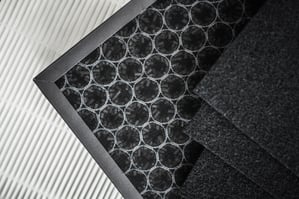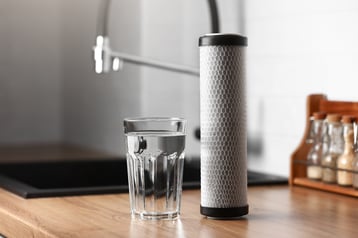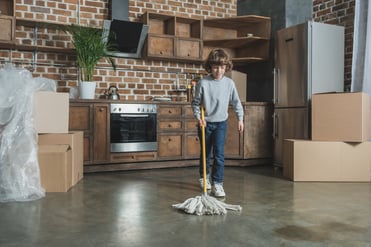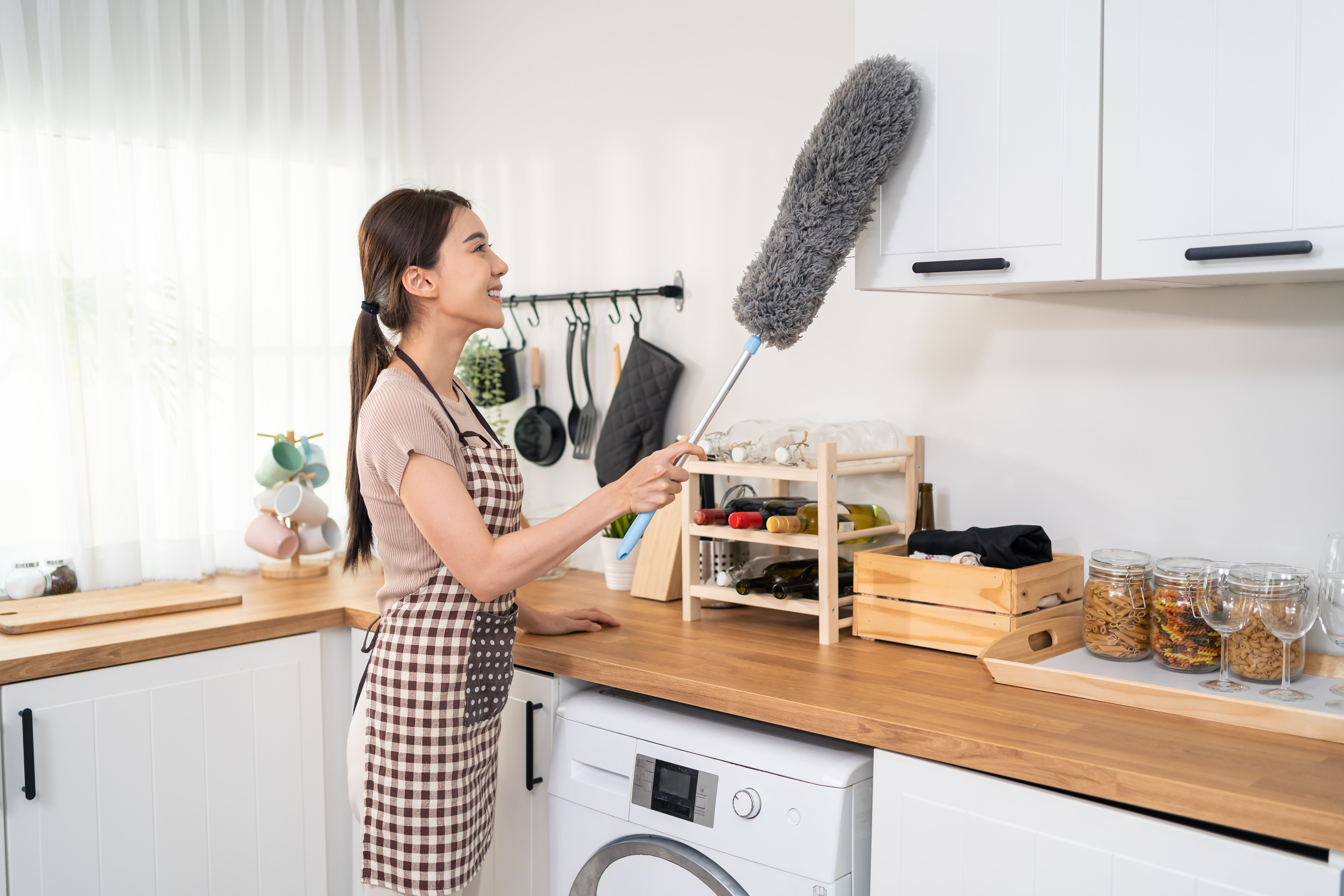HEPA Filtration: Keep Your Home Dust-Free and Clean
Developing an effective cleaning regimen is no easy task. From general debris to pet hair, cleaning concerns will vary significantly from one home to the next — but nearly all people eventually need to address airborne particles.
There are many ways to deal with allergens, but HEPA filtration is one of the most impactful. It's important to understand what HEPA filtration is and how it can impact your home. Below, the HEPA filter is discussed in detail — along with details about where HEPA filters are most effective and why.
Why dust is a problem and how HEPA filtration can help
It's no secret that dust is unsightly, but, the dangers of dust go far beyond aesthetics. Dust is problematic because of how it makes people feel: dust exacerbates the already problematic symptoms of asthma and allergies.
There are many ways to address dust, but HEPA filtration is one of the easiest and most effective. The goal of HEPA filters is to remove a variety of irritating airborne particles.
What is HEPA filtration and how does it work?
 HEPA filtration represents a tried-and-tested strategy for reducing dust exposure. HEPA is short for high-efficiency particulate air. Genuine HEPA filters trap 99.97 percent of particles with a diameter of 0.3 microns.
HEPA filtration represents a tried-and-tested strategy for reducing dust exposure. HEPA is short for high-efficiency particulate air. Genuine HEPA filters trap 99.97 percent of particles with a diameter of 0.3 microns.
Pleated construction and mechanisms such as impact and interception allow layers of material to easily remove variety of particles. The result: less irritation and greater comfort.
Benefits of using HEPA filtration systems
HEPA filtration stands out for its unparalleled efficiency in capturing a wide range of airborne particles, significantly enhancing indoor air quality, reducing allergy and asthma triggers, and ensuring a healthier living environment.
The term "air quality" refers to how pleasant or healthy the air is within a specific environment. When air quality is high, there are few harmful particles or pollutants. HEPA filters improve air quality and ensure the fewest number of particles remain in the air.Reduction in allergies and asthma symptoms
Fewer particles mean fewer opportunities for the symptoms of asthma and allergies to be triggered. Low air quality can prompt everything from sneezing and coughing to eye irritation or even difficulty breathing — but these issues are less likely when HEPA filters are used.
Removal of harmful pollutants and contaminants
 In addition to removing particles such as dust or allergens, HEPA filters can capture and remove many pollutants. It is far too easy to encounter these in daily life, but with HEPA filters, the home can provide a welcome respite.
In addition to removing particles such as dust or allergens, HEPA filters can capture and remove many pollutants. It is far too easy to encounter these in daily life, but with HEPA filters, the home can provide a welcome respite.
Common Sources of Dust in the Home
A variety of everyday concerns can increase the prevalence of dust in the modern home. Some of these issues are more avoidable than others. Here are some common sources that contribute to dust accumulation in your home:
Pet dander
Pets with fur or feathers release skin cells known as dander. These microscopic flecks may trigger pet allergies, including symptoms such as wheezing, itchiness, or watery eyes.
Pollen and outdoor allergens
Grass, trees, and weeds release pollen that can trigger hay fever. Also known as allergic rhinitis, this condition prompts cold-like symptoms, including sneezing or congestion.
Dust mites
 Small creatures that feed on dust are known as dust mites. These can exacerbate the already concerning symptoms of asthma. They are commonly found in upholstery, on curtains, and in rugs or carpeting.
Small creatures that feed on dust are known as dust mites. These can exacerbate the already concerning symptoms of asthma. They are commonly found in upholstery, on curtains, and in rugs or carpeting.
Mold spores
Mold spores, the tiny culprits behind mold reproduction, release irritants that can lead to watery eyes and other allergic reactions. Effective mold remediation extends beyond surface cleaning, with HEPA filtration offering a method to capture and remove mold spores from indoor air.
Importance of Regular Vacuuming and Cleaning
Vacuuming can provide reliable defenses against dust, allergens, and the other irritants highlighted above, although not just any vacuum will help. Only high-quality vacuum cleaners with HEPA filters boost the benefits of vacuuming to ensure that its impact is not merely aesthetic. To achieve the full effect, vacuuming must occur at least weekly, although some spaces will require vacuuming twice per week.
Choosing the right vacuum cleaner with HEPA filtration
Lower-quality vacuums may appear to clean surfaces without actually addressing dust and other minuscule particles. However, HEPA filtration ensures that vacuums capture airborne particles and improve air quality. As such, HEPA is non-negotiable. Quality sealing, a durable build, and versatile attachments are also important to ensure that every surface is targeted.
Using proper cleaning techniques to eliminate dust
 Strategic vacuum selection coupled with the right techniques will keep dust to a minimum. This begins with effective vacuuming: beginning in the corner, moving the vacuum slowly and in a grid-like manner to cover every inch of rug or carpeting. Use attachments for baseboards and other hard-to-reach areas where vacuums might otherwise leave dirt and debris behind.
Strategic vacuum selection coupled with the right techniques will keep dust to a minimum. This begins with effective vacuuming: beginning in the corner, moving the vacuum slowly and in a grid-like manner to cover every inch of rug or carpeting. Use attachments for baseboards and other hard-to-reach areas where vacuums might otherwise leave dirt and debris behind.
Tips for maintaining clean floors and reducing dust
Vacuuming is just one of several strategies that can be implemented to limit dust exposure. Preventative measures are also important, as these limit the extent to which dust is introduced in the first place. Essentials include:
Removing shoes at the door
 Many people mandate shoe-free homes because they are concerned about tracking in mud, but this is also great for avoiding dust. Provide a dedicated space for shoes to be removed and stored.
Many people mandate shoe-free homes because they are concerned about tracking in mud, but this is also great for avoiding dust. Provide a dedicated space for shoes to be removed and stored.
Using doormats and rugs to trap dust and dirt
Even after shoes have been removed, there are plenty of opportunities for dust or debris to make their way into the home via pant legs, jacket sleeves, and other conveyances. Doormats help, as some particles will naturally be deposited on them. These should be cleaned regularly, as should strategically placed rugs, meant to trap even more debris.
Regularly changing air filters
Maintaining clean air in your home requires diligent attention to air filter maintenance. For optimal performance, it's essential to replace air filters every 90 days, though homes with pets or residents with severe allergies might benefit from more frequent changes to ensure the air remains clean and healthy.
Keeping windows closed during high pollen seasons
It may be tempting to open the window and bring in some fresh air on a hot day, but this can exacerbate issues with dust. Open windows are best avoided when the pollen count is high.
The importance of HEPA filtration and maintaining clean floors for a healthy home
A lot goes into making a home healthy, hygienic, and hospitable. Vacuuming can have a huge impact, dramatically reducing dust levels so that homes look and feel their best.
HEPA filtration is crucial, along with a well-rounded cleaning regimen that addresses the many sources of dust in the modern home. This doesn't have to be difficult, as Kirby offers subscription plans – the result is a cleaner, healthier environment that residents and guests appreciate.
